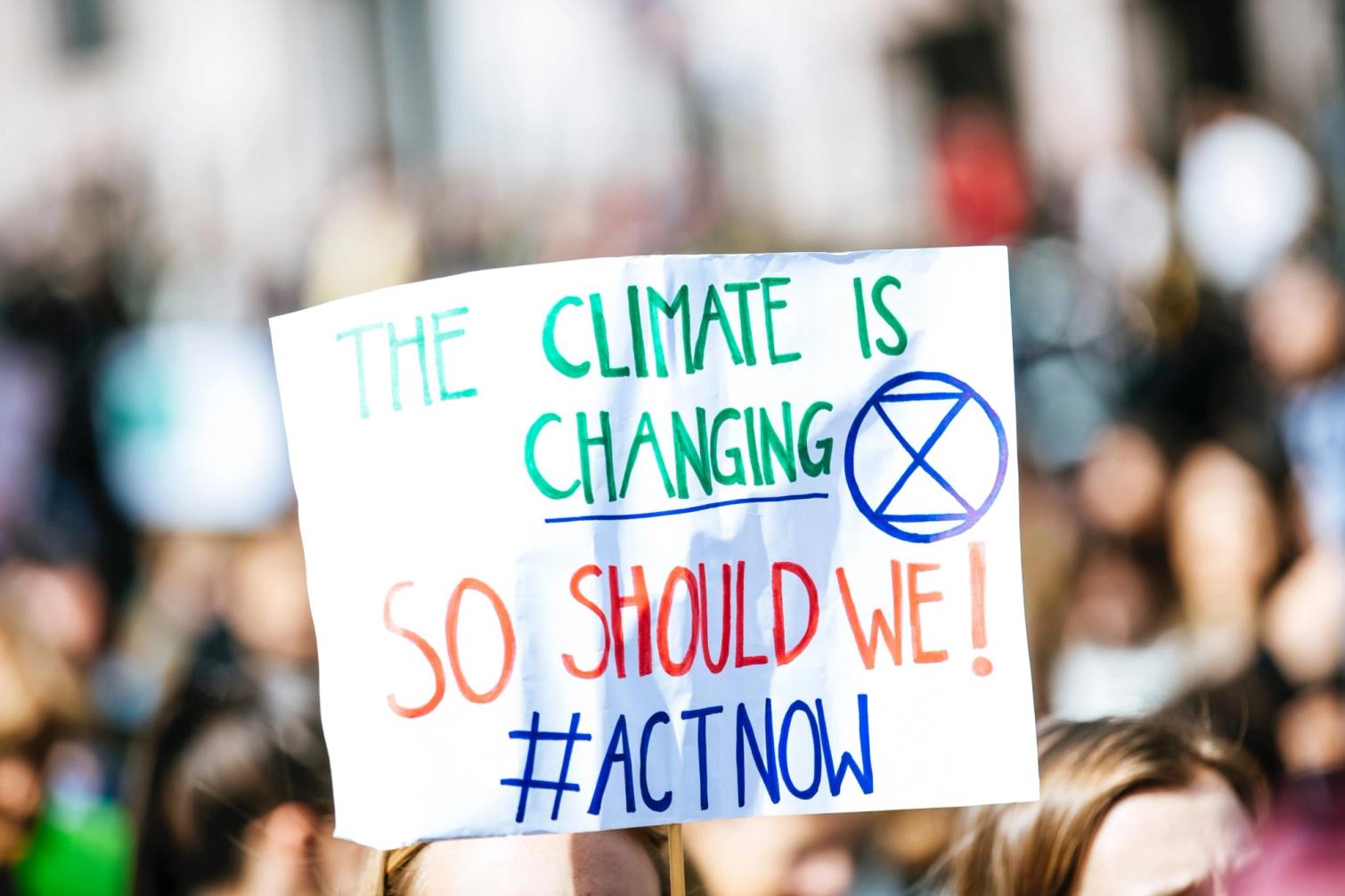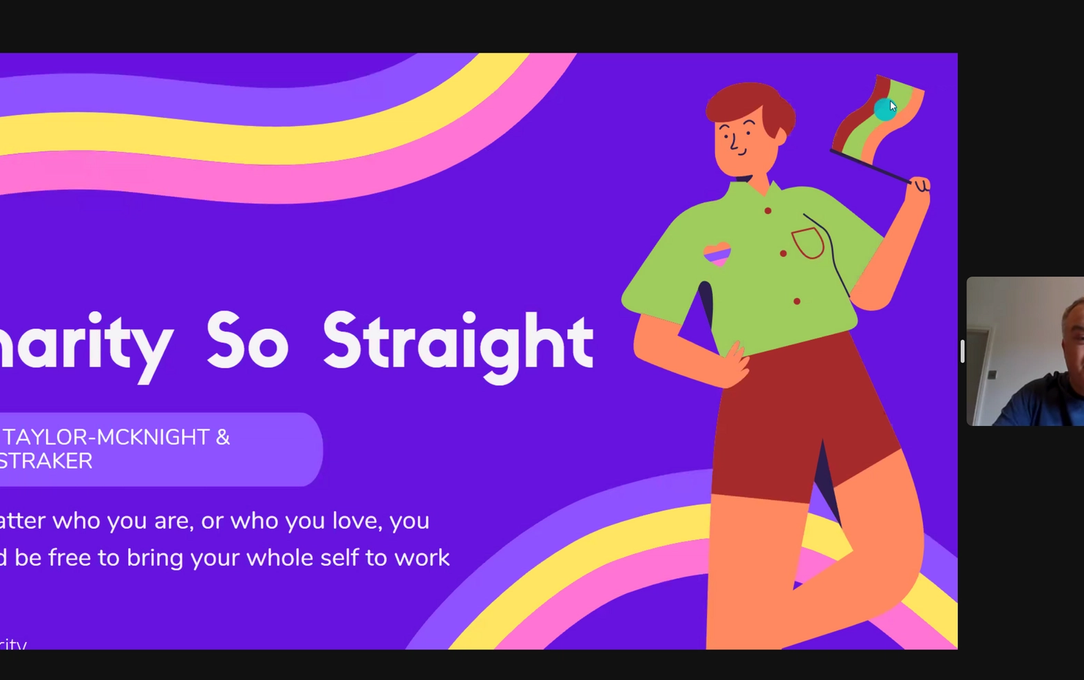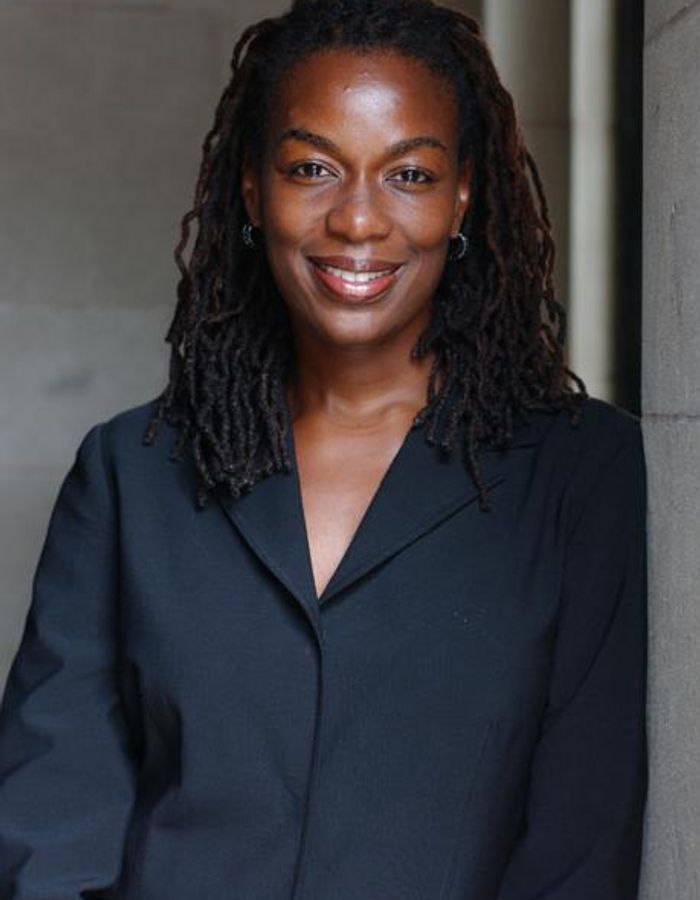Speak Up, Show Up, Act Up on Climate Change

On a cold, drizzly January morning, I made my way to an old handbag factory a few minutes’ walk from Oval. After a warm welcome from hosts Rubies in the Rubble, strategist, brand consultant and Extinction Rebellion speaker Paddy Loughman spent an impressive hour taking us through the case for climate change, its effects on the planet, and what businesses can do about it. This has come at a particularly pertinent time for Lightful, as 16 hours before Paddy began speaking, we had just signed our first Environmental Policy.
So what did I learn?
Mainly, “Business as usual” cannot continue. 85% of all carbon emissions by the burning of fossil fuels have occurred since the end of WW2, and over 50% since the 1980s. As a result of the greenhouse effect, our planet is warming, sea levels are rising, arctic ice is melting – but I don’t need to tell you this. The International Panel on Climate Change (hardly a radical organisation) says that we should stick to a maximum of a 1.5°C increase in global temperatures to avoid significantly worsening the risks of drought, floods, extreme heat and poverty for hundreds of millions of people. That’s a global average, and in some parts of the world, it could mean an increase of 10°C or more. For a bit of context, last summer, we had a heatwave… and fights broke out at a lido in London. Imagine what that means for countries that aren’t 3,500 miles from the equator; you don’t have to look far. Australia’s (and, by the way, Indonesia’s) forest fires in 2019 were the biggest in decades. Before December 2019 had begun, a greater area had burned in New South Wales that year than since 1984. The last five years are the hottest ever recorded.
Other highlights include:
- Think about carbon consumption rather than carbon emissions. Emissions can be exported – for example, the UK’s emissions will decrease as a result of UK firms moving production facilities to China. Consumption, however, cannot be exported – it’s ‘attached’ to the products and services individuals, organisations and countries consume.
- Sustainability is an opportunity for business, not a sacrifice. Consumers are choosing more ecologically sound products, governments are supporting green activities. Reducing business travel, packaging and energy consumption is an opportunity for businesses to reduce costs.
- 12% of the population think that climate change is an expensive hoax, while a further 20% are unsure or don’t know. That’s nearly 1 in 3 people who don’t think this is definitely happening.
But what can we do about it?
“Not everything that is faced can be changed… but nothing can be changed until it is faced.” – James Baldwin, playwright, novelist, activist.
The Extinction Rebellion recommended action on climate change boils down to three things: Speak up, Show up and Act up.
Speak up
What does this mean?
Speak up as organisations, and as individuals, talk about this stuff every day, with your colleagues, friends, family, write to you MP, leaders in companies, people on the bus (okay, maybe that’s a bit much). Give fair challenge when better decisions could be made. We’re at risk of losing momentum around climate change just as governments and big business are beginning to listen and take action. Now is the time to keep the conversation going as this is a problem that won’t just ‘go away’.
How’s Lightful speaking up?
Releasing our Environmental Policy was the first step. Blogs like this one (and more are planned) are helping to spread awareness, and keeping the conversation going in the office, with our customers and our suppliers… but more on that in a second. We’re also registering as a B Corp, which will communicate our commitment to people, planet and profit, and add our support to this global movement.

Show up
What does this mean?
Vote for it in every way you can. Turn up at the voting booth, and make the right choice to combat climate change – national elections are the obvious one, but council elections, mayoral elections, or even electing the chair of your chess club could have a significant impact on the environment. With the right leaders at every level, organisations will increasingly make the right choices for the environment.
We also vote every day with what we buy – switch out that beef burger for veggies, change your electricity plan to be 100% renewable, take a reusable cup, drink oat milk, take the train, not the plane. A million small actions can send one big message.
How’s Lightful showing up?
It’s tricky for private organisations to get involved in politics, and it would be inappropriate for us to influence our employees (apart from encouraging them to vote however they want to – because when more democracy happens, everyone wins). However, we’re taking steps to improve how we vote with our wallet:
- We’re writing a purchasing policy which will include a preference for local and environmentally friendly suppliers.
- Business travel is a natural part of our consulting business, but we don’t do it unnecessarily.
- We have a flexible working policy, reducing the impact of our people commuting. What travel we do is also offset, along with their personal carbon emissions, using offset earth.
- We’re working with our landlord to switch to greener energy, reduce energy use, water use and waste, and improve recycling.
Act up
What does this mean?
Disobey ‘Business as Usual’ however you can. Be it taking part in the next Extinction Rebellion action or challenging others’ opinions (remain respectful), disobedience can shift the discourse. Governments are beginning to listen and take action.
What’s Lightful doing about it?
As an organisation it’s even harder to act up than it is to show up – we rely on structures and systems and having legitimacy in society to allow us to turbo-charge the good work not-for-profits achieve. If we lose the right to operate, we can’t have that positive impact. We can, however, operate at the fringes of obedience, and support our people in acting up. For example, we don’t ask about criminal records when recruiting – we only care about skills and experience, so if they’ve been arrested as part of an environmental protest, it wouldn’t matter (in fact, we’d love to talk to you about it!)… but we’re not sure what other options there might be. If you have any ideas, please do feel free to get in touch.
If you’re reading this, you probably already reckon there is a climate emergency that is unfolding today. Perhaps you weren’t aware of some of the facts, or think that I’ve missed something significant (please get in touch if I have!); I’m still learning about what I can do to make a difference on a personal level, but the above framework is a good start.
Organisations like Lightful have different constraints but also different opportunities. We can put the purchasing power of a fast-growing organisation to vote with our money, we can empower our people to act in the interest of the climate, and we can join the growing business community that supports people and planet alongside profit. And we urge every other business to do the same because we can’t solve it alone.
This blog is part of a 5 part series in declaring a climate emergency for people, planet and profit. Stay tuned for more blogs on this topic as we expand on our efforts to combat climate change.
Caleb Wheeler-Robinson works in our HR team. Alongside his people and culture responsibilities, he’s been working on registering us as a B Corp and is supporting our landlords to make environmental improvements throughout our building. Caleb joins us as an On Purpose Associate: a leadership development scheme to transition young professionals into the world of social impact.
Latest articles

In a world of growing uncertainty, small and local non-profit organisations often find themselves with competing priorities and struggle to plan how to allocate their available resources. Despite the increasing demand for their vital work, they are not always able to allocate the funds they receive to strategic planning and future growth.

As the world becomes more digitally-focused, it’s essential for nonprofits to have a digital presence. With more and more options for online engagement, we know that this can be challenging for nonprofits to tackle. But, we also know that it is a huge opportunity to increase audience engagement, awareness and fundraising. To help nonprofits navigate this, we’re going to explore the “whys” and “hows” of creating a nonprofit digital strategy. We’re even providing a free digital strategy canvas to help nonprofits improve their online presence in just a few steps.
Related posts

We invited Charity So Straight at #TeamLightful for a Lunch & Learn about workplace diversity and Pride allyship.

We are thrilled to be part of the Escape 100 list for the second year in a row with the top purpose-led companies to ‘escape to’ in 2022! 🎉
See who we help
Contact us
Want to learn more?
Email Jonathan and start a conversation





